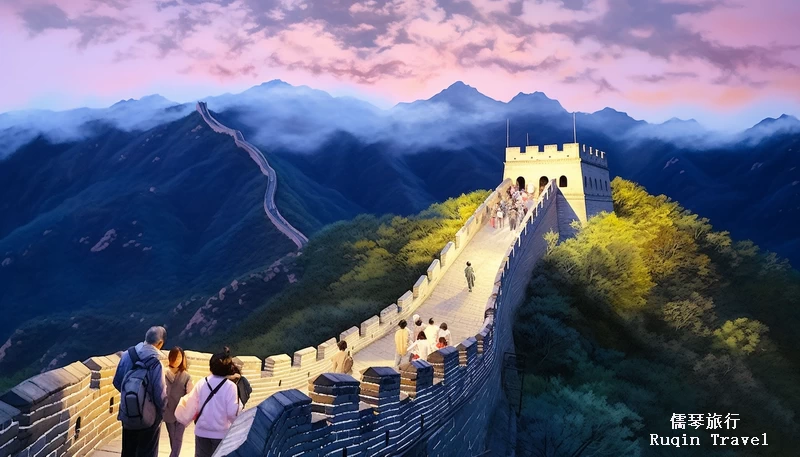1. Watches, designer bags, electronics and designer clothing are among the most counterfeited products. Shop for these products with extreme care.
Pro: Helps you focus your scrutiny on likely copyright products.
Cons: It's possible to be skeptical of genuine products without adequate knowledge.
2. Authentic product details can be found through research
TIP: Be familiar with the logo of the company, stitching, material, and packaging details before shopping.
Pro: Improves your ability to spot subtle differences between copyright products.
Con: It can take some time, especially when you're making use of products you don't know.
3. Trusted Stores
TIP: If you're trying to purchase high-end products, you should to stick with official brands or trusted malls like Beijing China World Mall or Shanghai Plaza 66.
Pro: Ensures the authenticity of the product and is accompanied by warranties, receipts, etc.
Con: The cost of certain items could be higher than the prices in smaller shops or market stalls.
4. Labels and Tags: Examine them
TIP: Watch out for misspellings, inconsistent fonts, or low-quality materials on tags and packaging.
Pro: An easy and simple way to identify fakes made with poor quality.
Con: Fake products with high-end quality may look like authentic products, which makes it difficult to distinguish.
5. Beware of "Too Good to be True" Prices
A red flag is a price that's too low for luxury products. The most expensive luxury items are not often sold below the retail price.
Pro: Beware of obvious frauds.
Contra: A few sellers make use of moderate pricing to make fakes appear more convincing.
6. Request Authenticity Certificates
Tip - For items like jade (or antiques), branded merchandise, or brand new goods make sure you have authentic proof.
Pro: Provides an additional layer of confidence in your purchase.
Con: Because certificates may also be faked, this method isn't 100% foolproof.
7. Test before buying
Make sure you test the electronics and high-value products before you buy these items.
Pro: It assists in confirming the quality and function.
Con: Sellers will not always permit testing. Tests may be too limited or superficial.
8. Avoid buying antiques if you are not an expert.
Tips: An authentic antique requires a lot of knowledge and expert verification. If you're not sure about their authenticity, avoid them.
Pro: Lowers the chance of being swindled by replicas or counterfeits.
Cons: You might miss out visually appealing, yet inauthentic decorative items.
9. Use a Local Guide that You Can Trust
Tip - A local guide who is familiar with the market can aid in identifying reliable vendors.
Pro: Lowers the risks and helps save time when shopping in unknowledgeable markets.
Cons: Guides might expect a gratuity or commission which will increase your expenses.
10. Be open to your intuition
You must leave the seller if you don't feel not right. This could be the customer's attitude, or the quality of the product, its price, etc.
Pro: Protects you from making costly purchases that you regret.
Con: Being too cautious can lead to you not taking advantage of great bargains.
Take into consideration the advantages of not buying copyright goods
Durability. Authentic products last longer in shelf life and are better for the money.
Peace of Mind: No concerns about being deceived or scammed.
Legal Safety: Some countries penalize travelers for bringing copyright back home.
Brand Reputation: Supporting genuine products is a way to ensure ethical business methods.
The Cons of Avoiding False products
Authentic products are usually more expensive.
Access to goods is limited. Genuine products may not be readily available in smaller stores or in street markets.
The counterfeits may be of good quality and are a great bargain.
These guidelines will allow you to navigate the shopping experience in China with confidence. You will be able to make educated choices about whether you're purchasing authentic or replica products. See the recommended discover this must-visit location for blog tips including tips for identifying copyright, jinan transportation, weaponry of iron age iron cannon iron armour and warships, shopping in shangri la, tours for the disabled, luoyang peony and wangcheng park, south luogu laneone of the oldest neighborhoods in beijing, shopping in shangri la, chinese festival cuisine, shopping in harbin and more.

Top 10 Tips On How To Avoid Fees And Photography Rules While Visiting Temples In China
1. Entertainment Fees: The most well-known temples charge fees for entry, which could vary from Y=20 to 200 Y. Plan your trip ahead.
Pro tip: Avoid unexpected costs by making sure you have the right quantity of cash as well as the digital payment.
Con: Unexpected extra costs, like exhibition fees could be incurred.
2. Bring cash or digital payment
Tips A few temples don't accept credit cards or other popular Chinese methods of payment, such as WeChat Pay.
Pro: Ensures smooth entry with no delays in payments.
Cons: Limited payment options for foreigners unfamiliar using digital applications.
3. Look for signs that reference photography
Be sure to read the signposts to see if there are any restrictions for photography. Many temples do not allow photography within sanctuaries, or at the vicinity of sacred artifacts.
Pro: Prevents accidental disrespect of rules or breaking the law.
Con: There might be different rules in different temple areas that require special care.
4. Avoid Flash Photography
Tip: Even in areas where photography is permitted be careful not to use flash since it can cause damage to artifacts and disturb worshippers.
Pro: It protects the temple's environment and artwork.
Con: Insufficient lighting can result in photos that aren't ideal.
5. Respect Worshippers' Privacy
Do not take photographs of religious ceremonies or individuals praying, unless they have given you permission.
Pro: Shows an understanding of culture and respect for personal space.
Cons Limits your ability capture temple atmosphere.
6. Follow Drone Restrictions
Tips: Generally drones aren't allowed in temples. Check local regulations if you plan to use one for aerial shots.
Pro: Avoids fines or the confiscation of your drone.
Cons: The limited number of angles for photography makes it difficult to make distinctive shots.
7. Be Prepared for Fees Additional to the Rates
A suggestion: Some temples charge a fee additional to use professional equipment, like DSLRs or tripods.
Pro: Make sure you take high-quality photos legally.
Cons: Added to trip expenses
8. Dress sensually
Tips: Dress code is essential when visiting temples. Dressing inappropriately could cause the restriction of entry or even a the refusal of entry.
Pros: Displays respect for the religious setting and helps to blend into the crowd.
Con: Additional preparation is required in hot weather.
9. Avoid Crowded Times when Taking Photos
TIP: Make sure to travel early in a morning or in the late afternoon to avoid crowds. It is easier to make better photos with less obstruction.
Pro: Enhances your enjoyment by taking better pictures.
Cons: You may have to change your schedule which may not be convenient.
10. If not sure, request permission
Tip: If you're not sure regarding the rules for photography, ask temple staff or signs for clarification.
Pro Aids you in avoiding breaking rules unintentionally.
Con: Language barriers might make communication difficult.
The benefits of following photography Fees
Respect cultural diversity:
Artifact Preservation: Helps protect fragile structures and artifacts from damage.
Positive Experiences: Avoid confrontations with temple staff or worshippers.
Legal Compliance: Helps to avoid fines for violations of photography laws.
Cons of Following Fees and Photographic Rules
Extra Costs: Fees for entry or photography permit could add up.
Limitations on Creativity: These limitations can make it difficult to shoot the perfect shot.
Language Barriers: Inability read local signage or to communicate with staff.
It takes extra time and effort to prepare for a research project.
By adhering to the rules and fees for photography will ensure you have a pleasant legal, respectful, and safe visit to China's stunning temples, while maintaining their sacred and cultural integrity. Have a look at the top rated find out what makes this place special for website examples including top three buddhist temples in chengdu, the master of nets garden the hall of ten thousand books, the top 4 movies about kung fu and chinese culture, the master of nets garden the hall of ten thousand books, guilin travel tips, eating in urumqi, chinaexpeditiontours.comattractions, shopping in fuzhou, shenzhen golf club, chinese vegetarian food a vegetarians guide in china and more.
